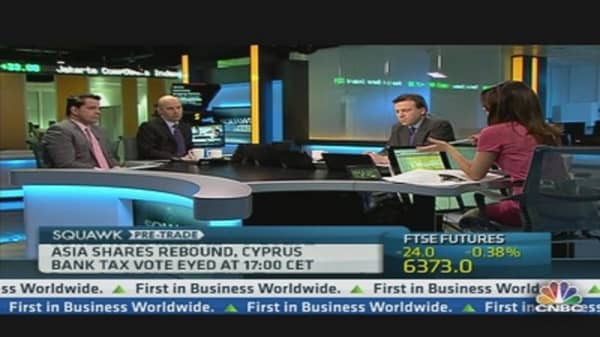(Read More: March Madness: Cyprus May Give the Fed More Ammunition)
The total size of its QE (quantitative easing) program is now $85 billion a month. This stimulus has divided economists in the U.S, with some concerned that the tactic will cause inflation. It is not a concern Scaramucci shares.
"I don't think the Fed comes out of this thing until 2015 and the reason why is that they've got to continue to reduce the panic that is in the markets. I think we're still experiencing post-traumatic economic stress," he told CNBC Tuesday.
"I think he has done a magnificent job despite the criticism."
(Read More: Wall Street Boosts Outlook for QE: Survey)
A "financial war" took place in 2008, according to Scaramucci, and the central bank will continue to stay in the markets, keeping interest rates low as people are still very fearful, he said.
Bernanke is effectively not just printing money. Rather, he is using numerous tools in his toolbox and doing something which is "astonishing and unprecedented".
But Scaramucci warned that if Bernanke is not careful he could become the "chairman of the federal reserve for wealthy people" instead, with average U.S. citizens seeing their incomes severely squeezed.
(Read More: Why Fed's Role as Fiscal Shock Absorber Is Ending)
"He's got asset reflation taking place, at the same time he's got food and energy prices becoming more expensive in the United States and around the world. And if you're on fixed means, your pizza pie slice of money going towards food and energy is increasing and that's going to make it very difficult for you," he said.
"So putting the drugs in the body, there is a side effect to that, which we are experiencing."
—By CNBC.com's Matt Clinch




